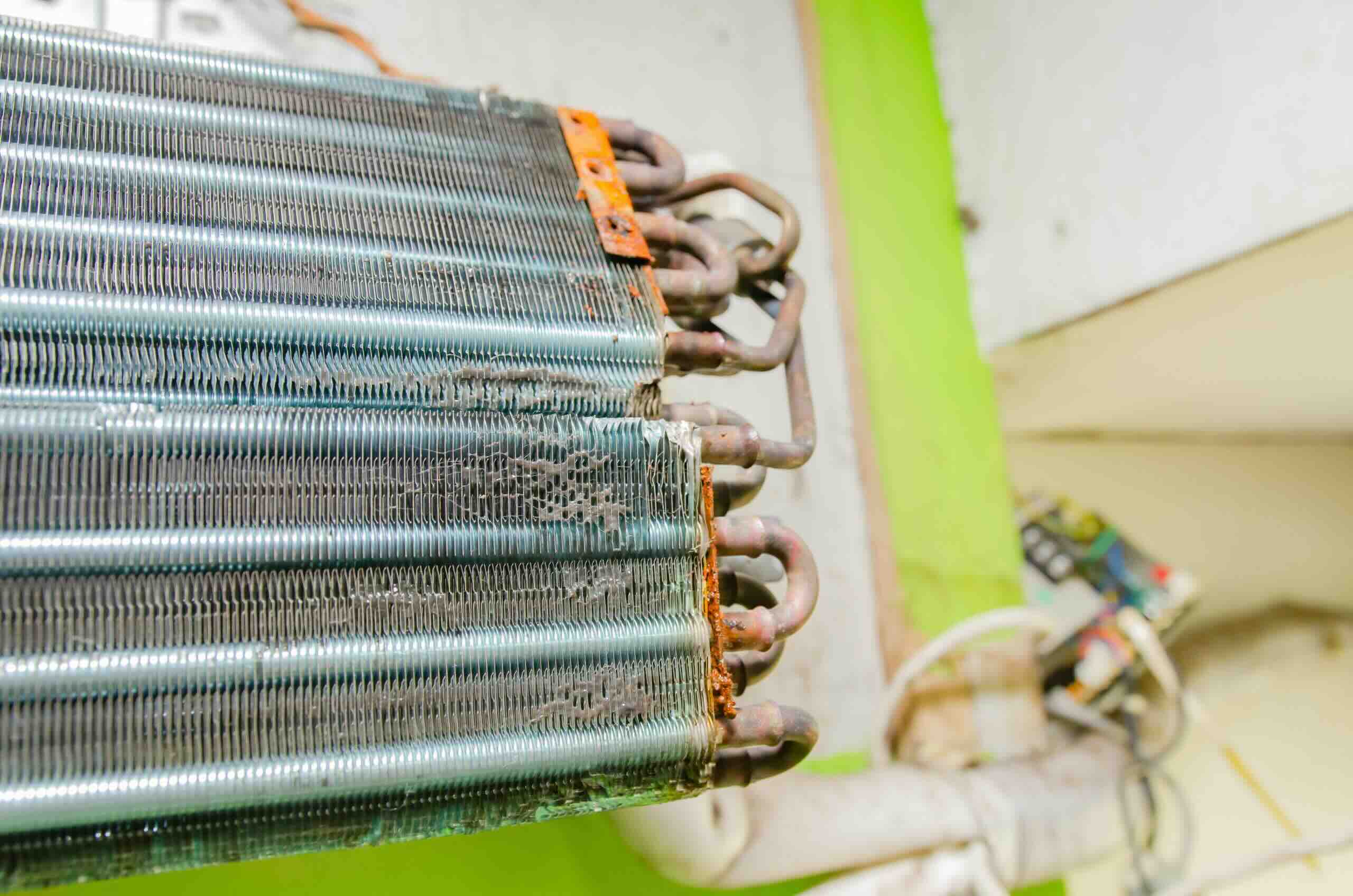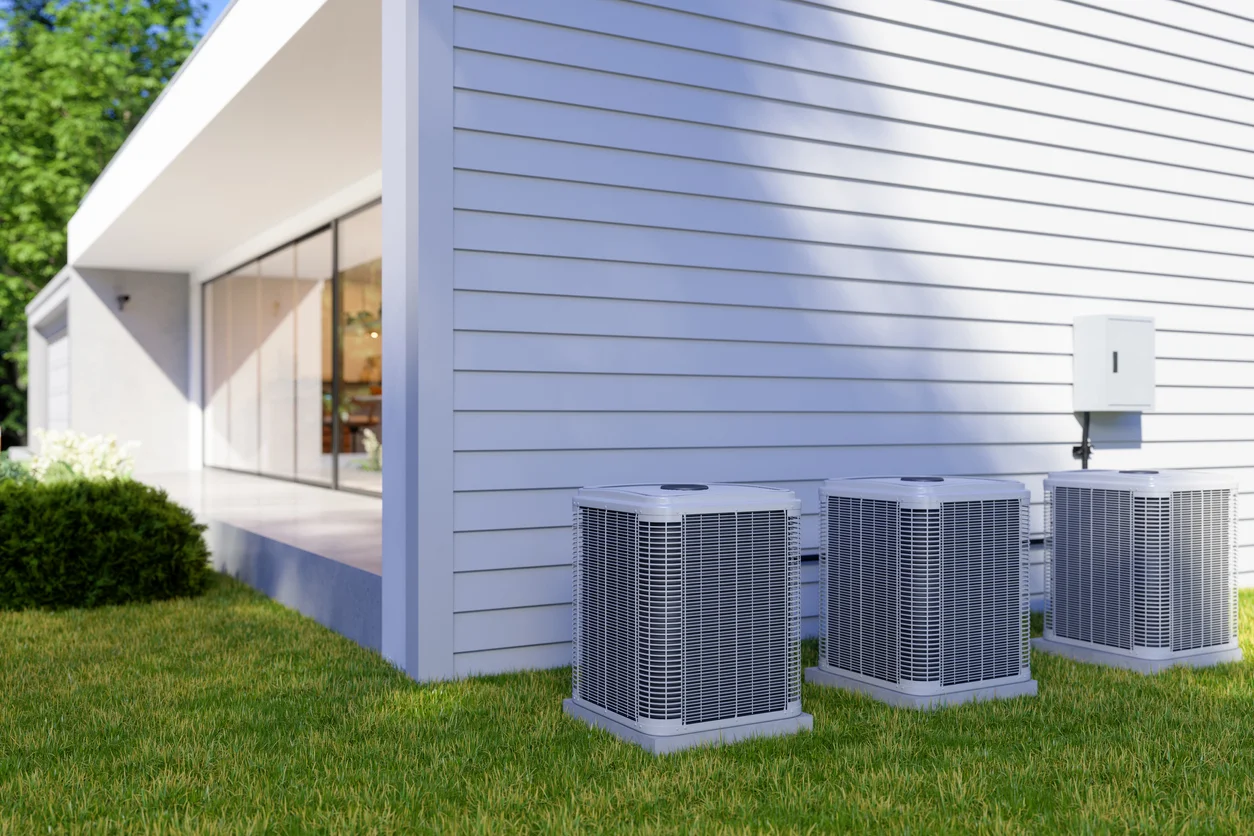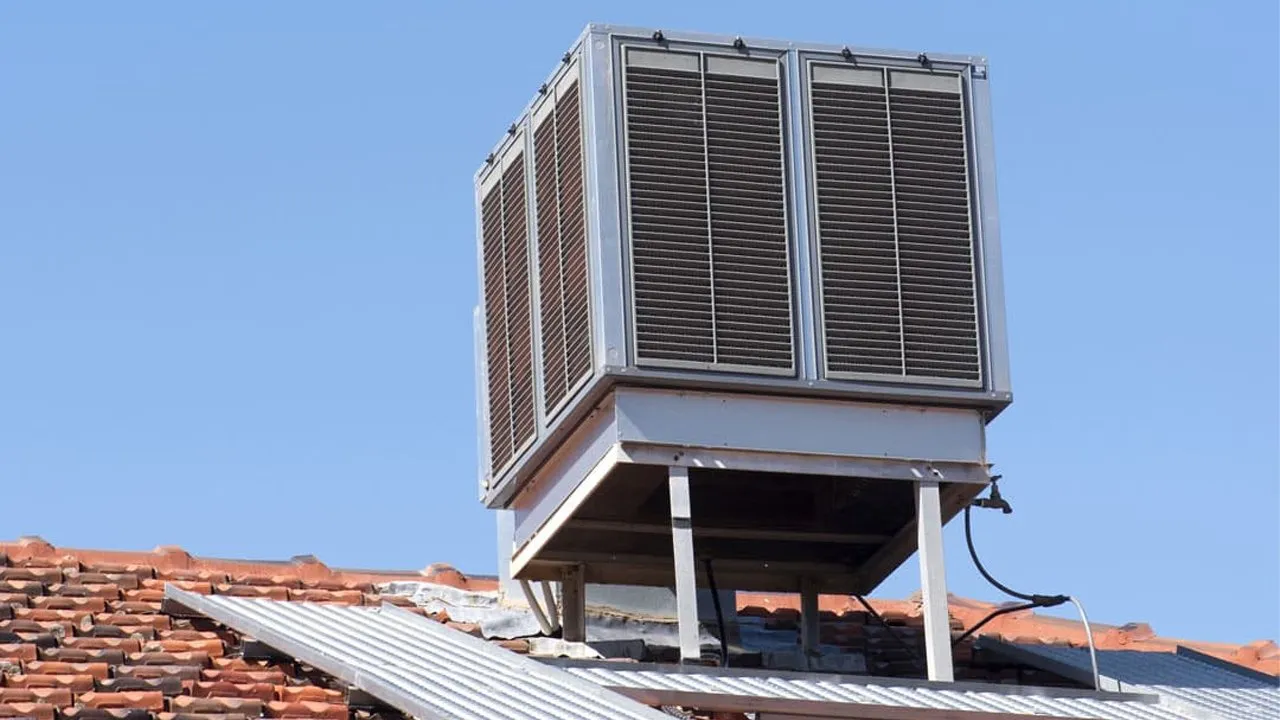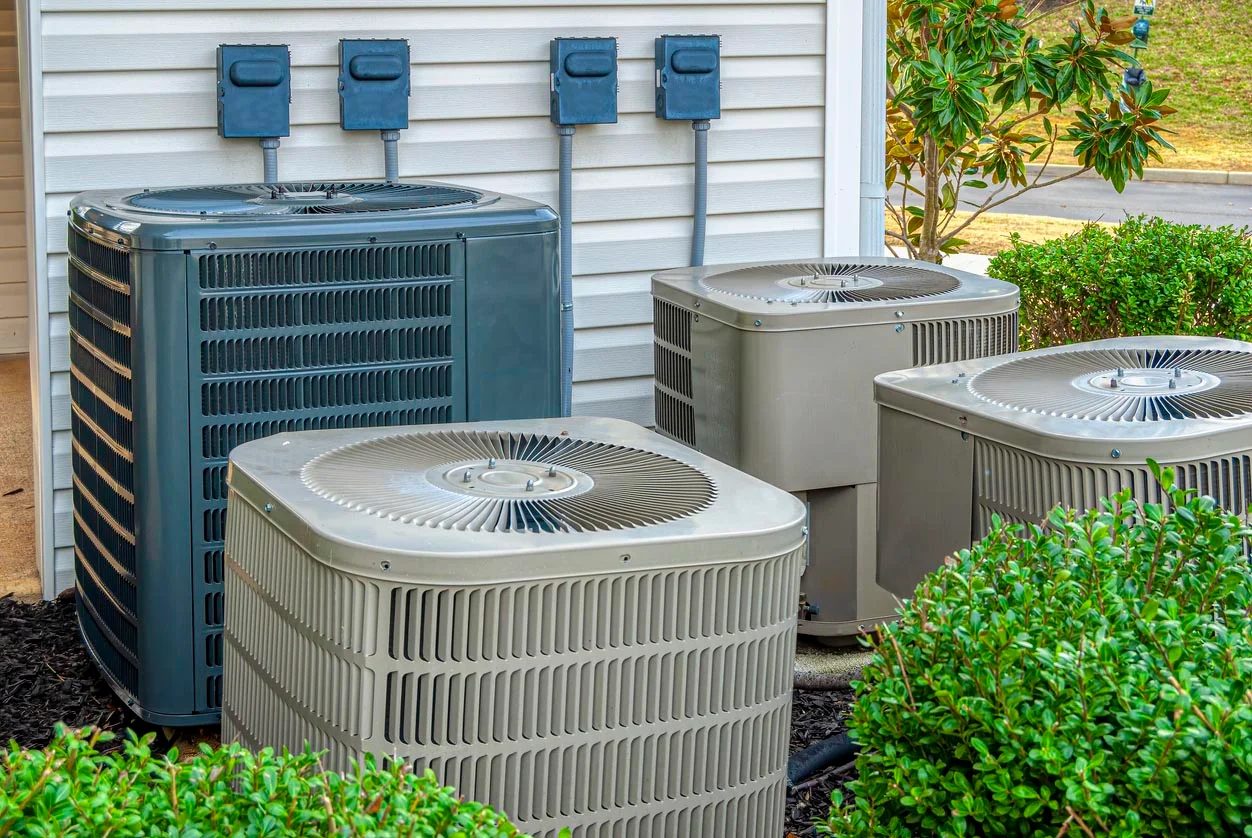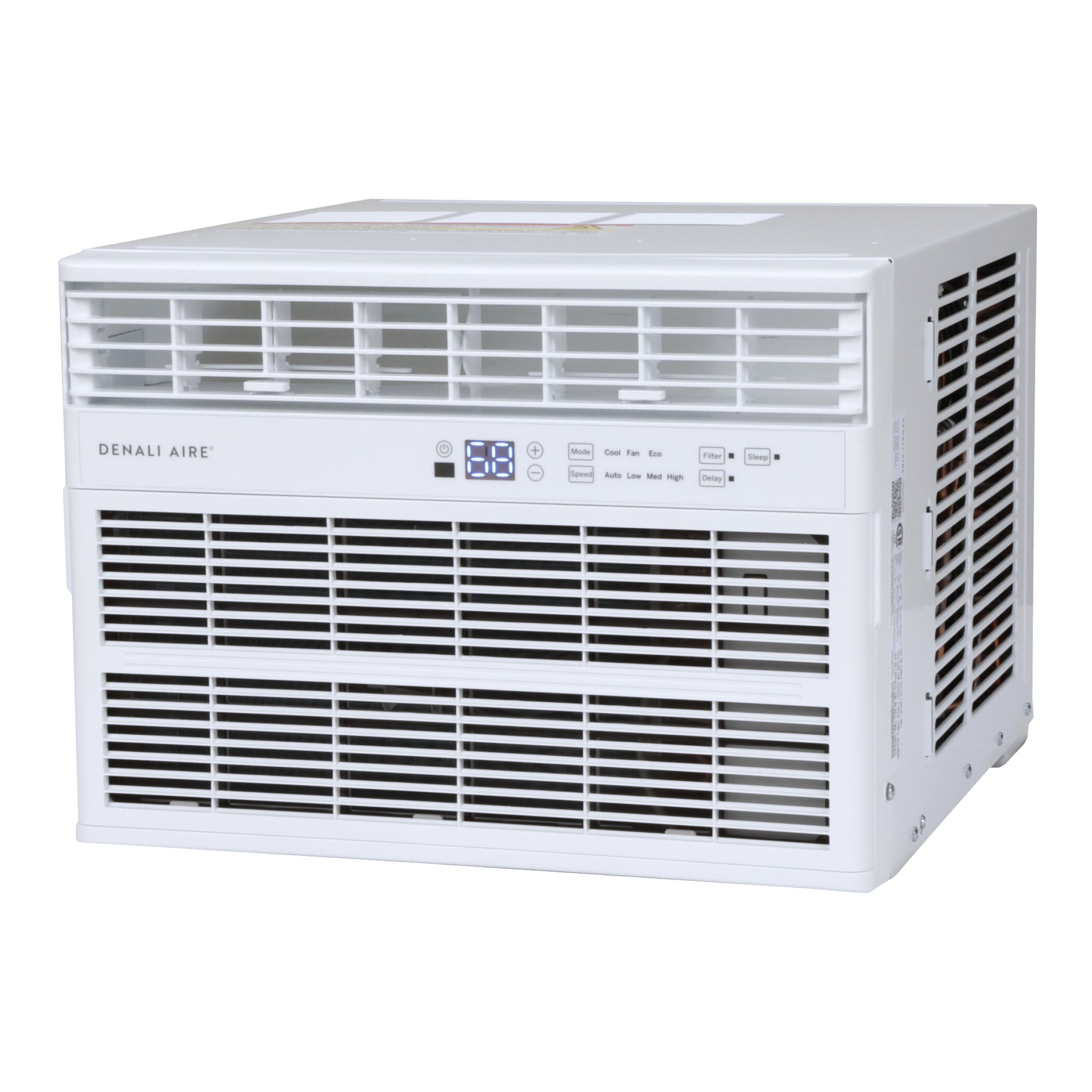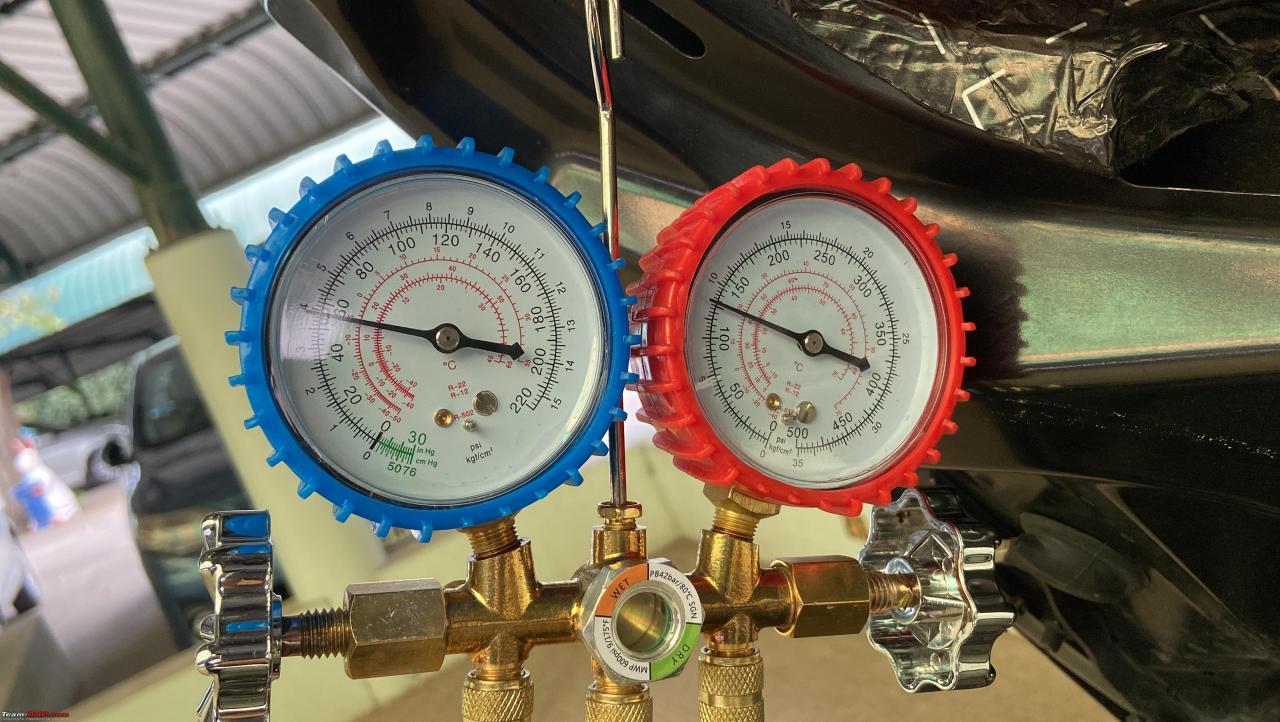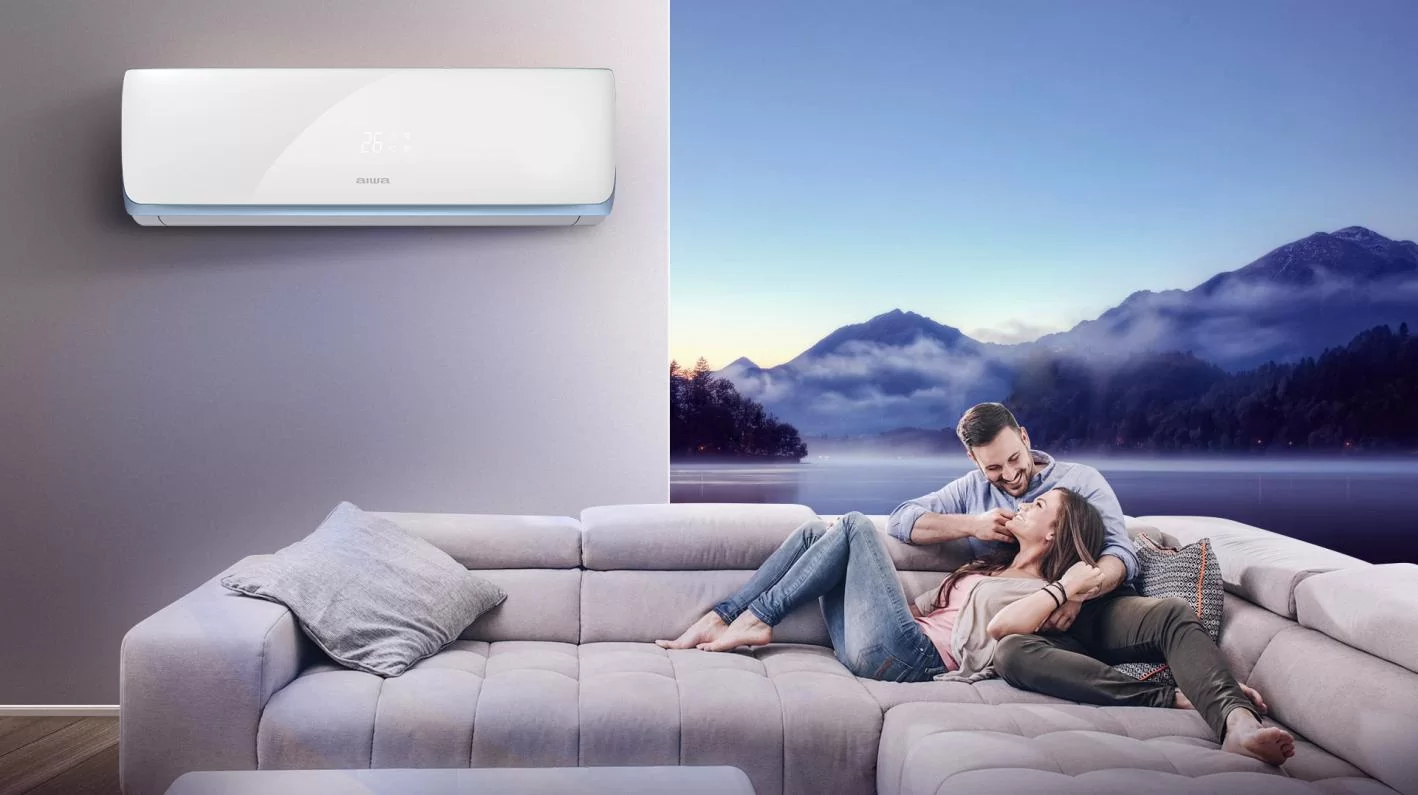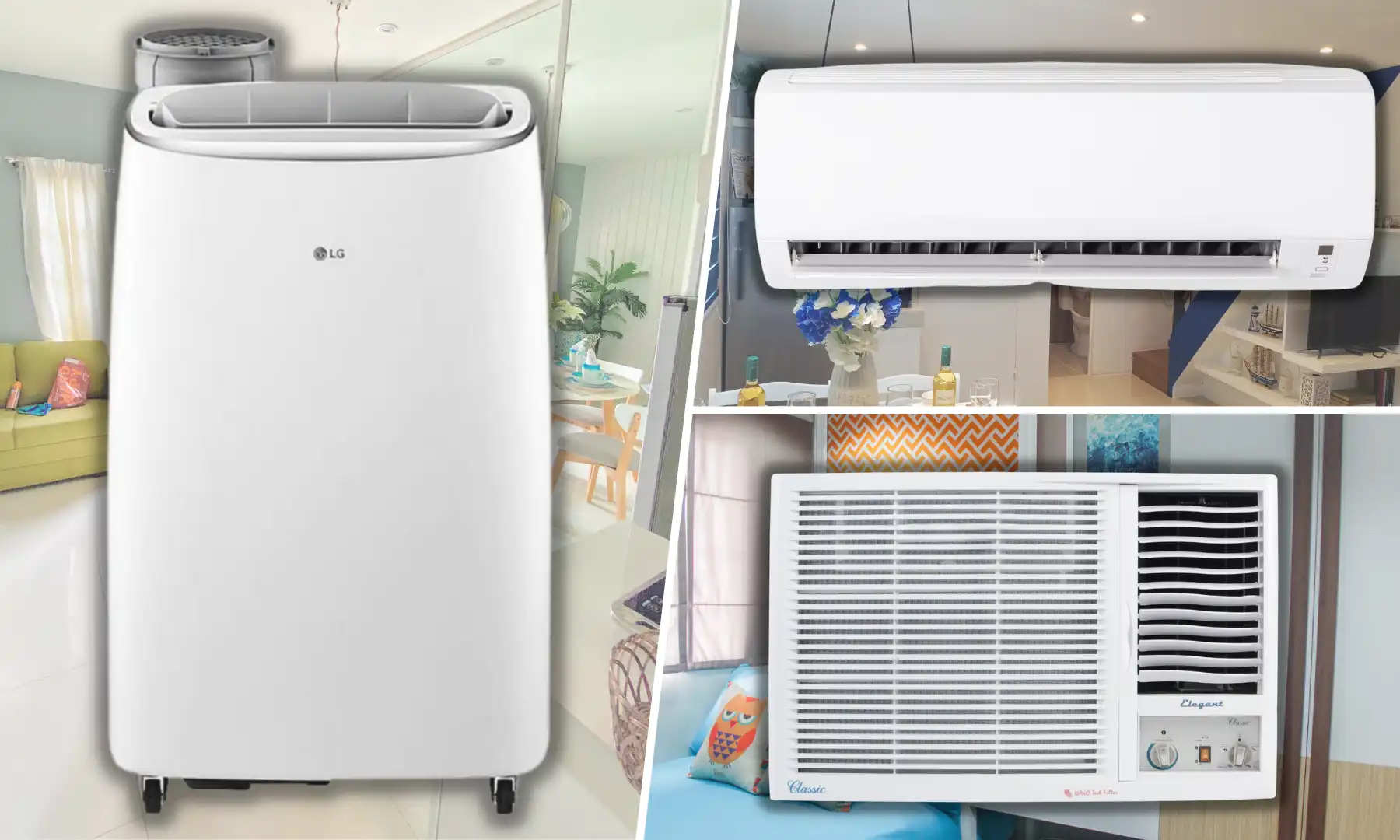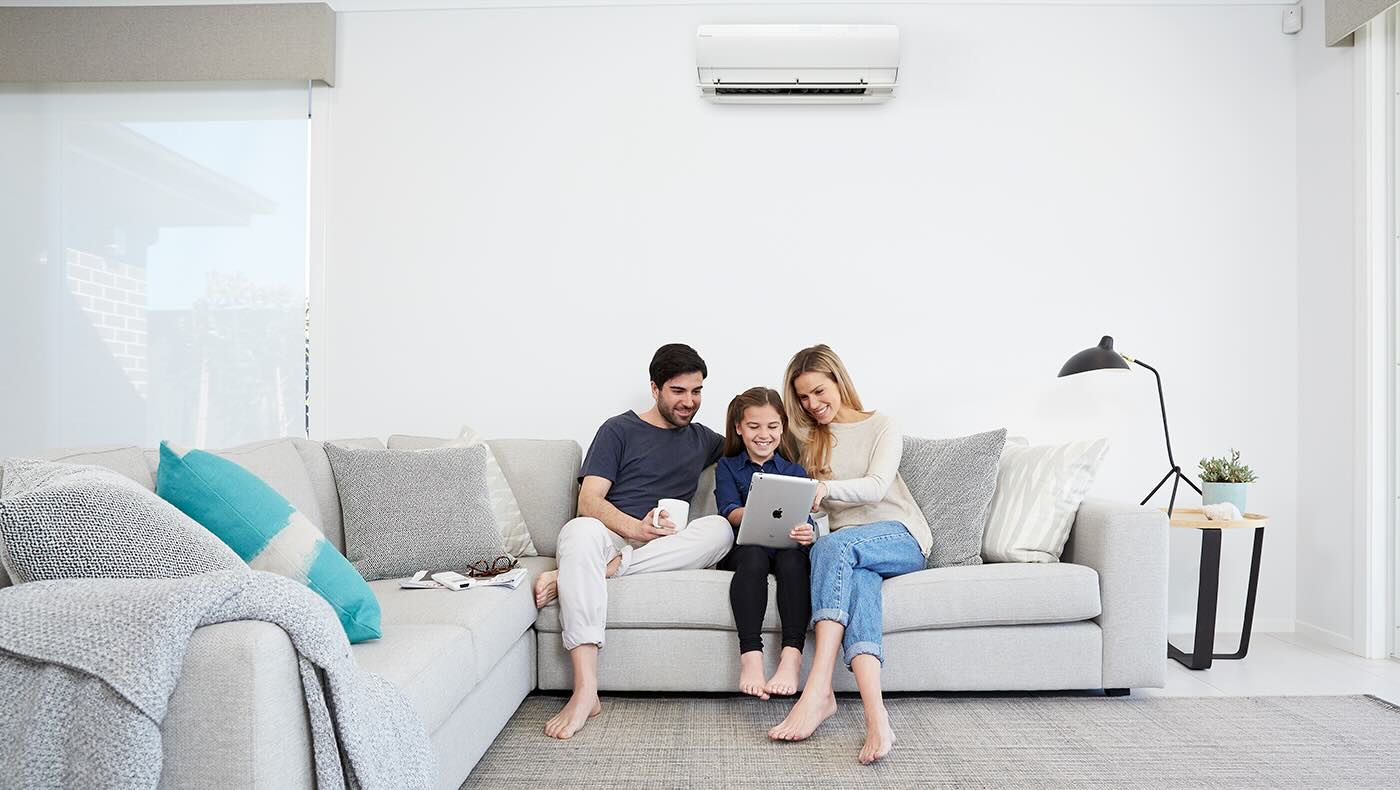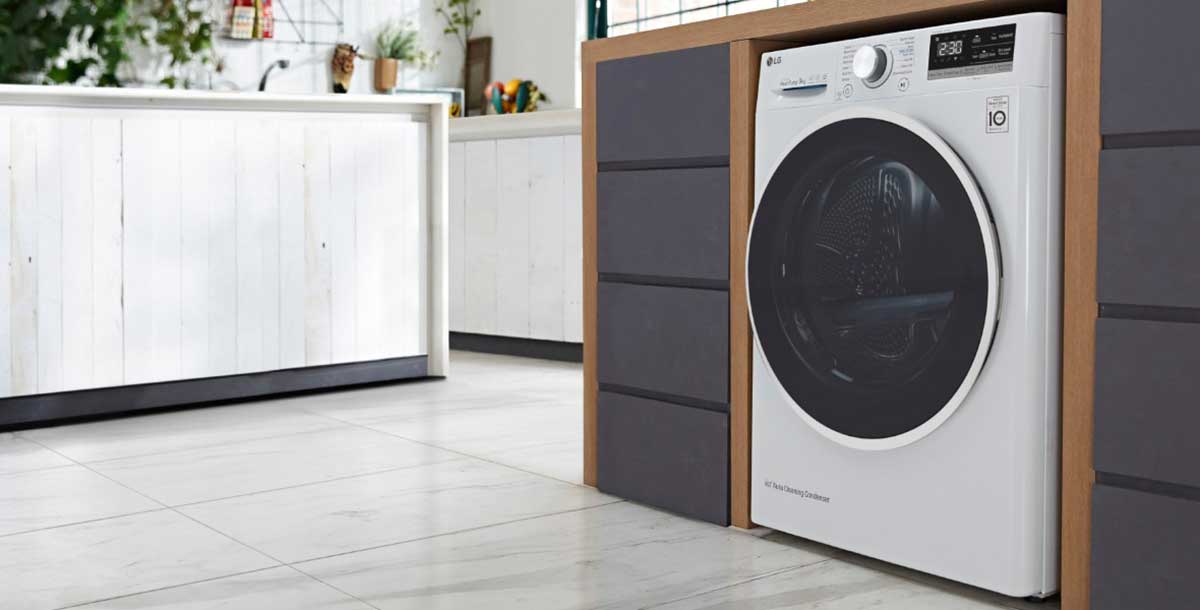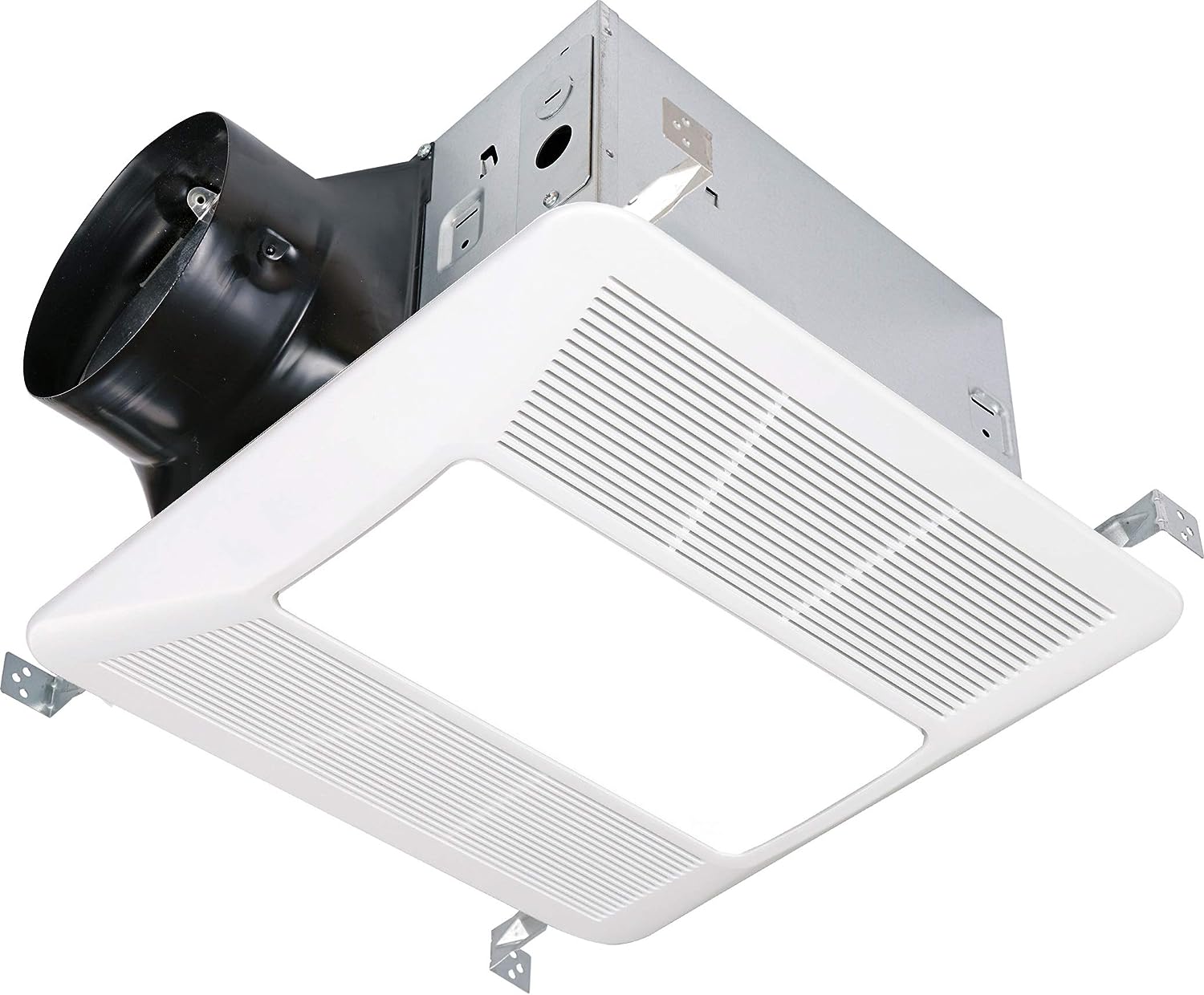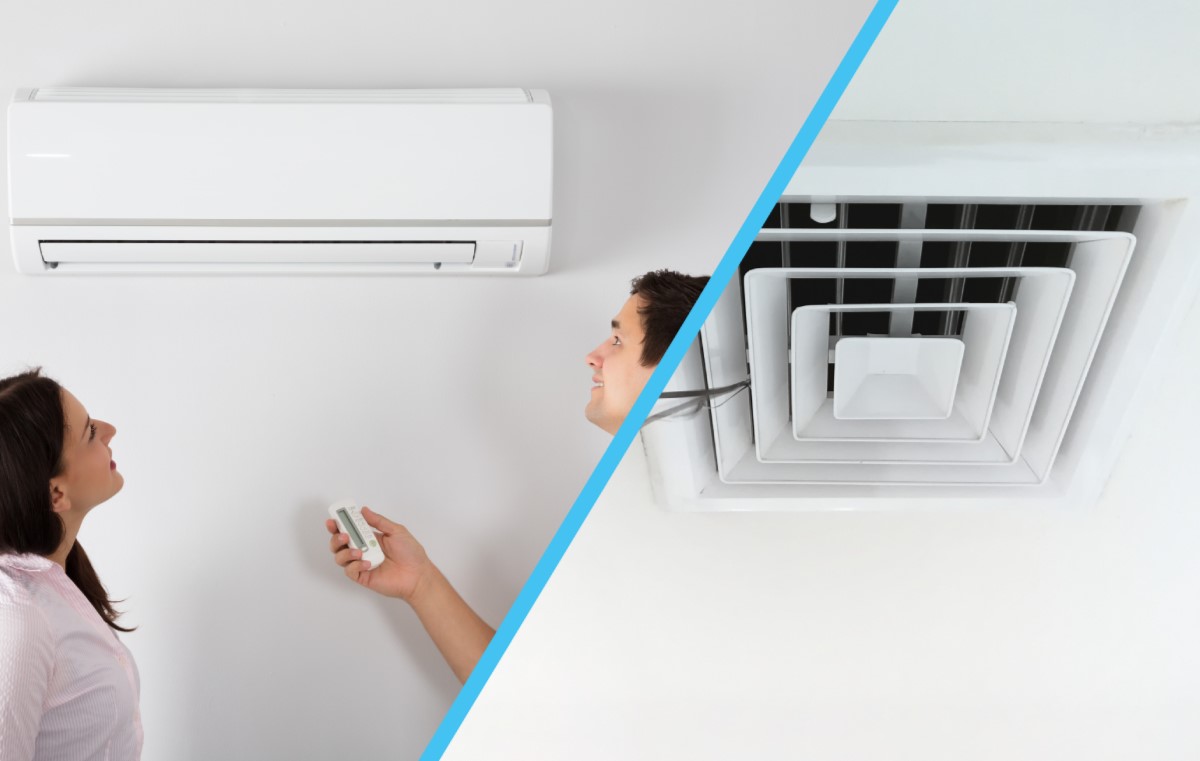Home>Home Maintenance>What Is The Quietest Air Conditioner
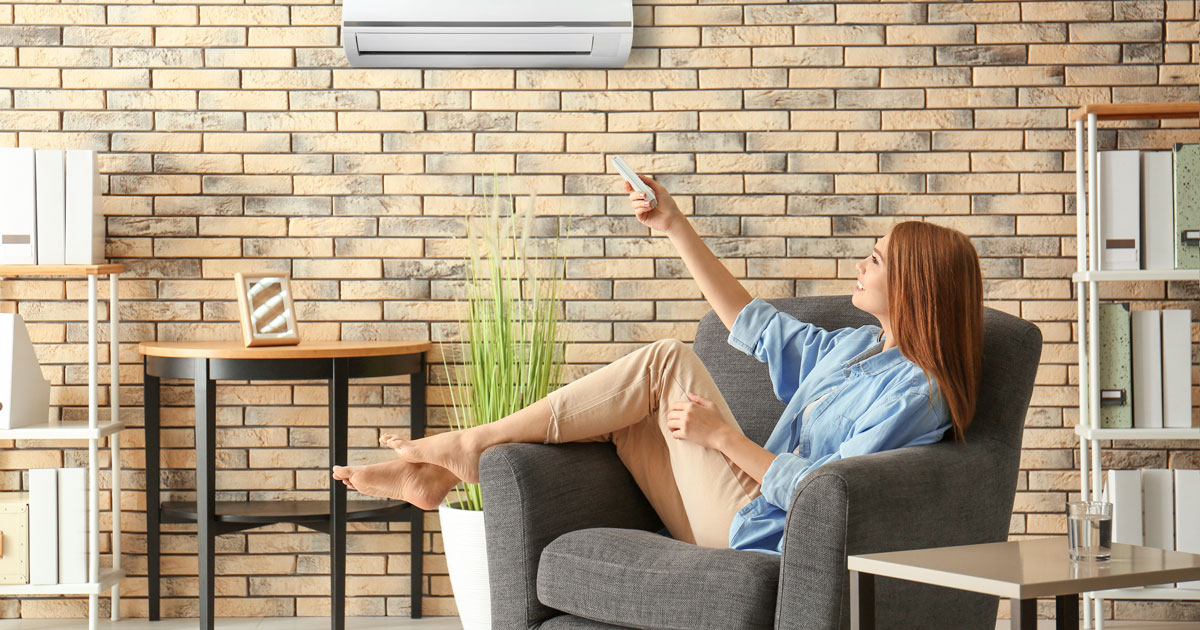

Home Maintenance
What Is The Quietest Air Conditioner
Modified: September 1, 2024
Looking for the quietest air conditioner? Discover the best options for home maintenance with our guide to finding the perfect, noise-free cooling solution.
(Many of the links in this article redirect to a specific reviewed product. Your purchase of these products through affiliate links helps to generate commission for Storables.com, at no extra cost. Learn more)
Introduction
Welcome to the world of home maintenance, where comfort and convenience are key. When it comes to creating a comfortable living environment, few things are as important as having an efficient and quiet air conditioner. In this article, we will delve into the realm of quiet air conditioners, exploring what they are and how they can enhance your home.
There’s nothing quite as disruptive as a noisy air conditioner. Whether you’re trying to relax in your living room, get a good night’s sleep, or have a productive work environment, the constant humming and rattling can be a major nuisance. Fortunately, advances in technology have led to the development of quieter air conditioners that can cool your space without disturbing your peace.
Before we dive into the different types of quiet air conditioners, it’s important to understand how noise levels are measured. Air conditioner noise is typically expressed in decibels (dB). The higher the decibel level, the louder the unit will be. As a point of reference, a normal conversation typically ranges between 60-70 dB, while a quiet library is around 40 dB.
Factors that affect air conditioner noise levels include the type of compressor used, fan speed, the design of the unit, and the location of the installation. Different types of air conditioners also vary in noise output due to their unique mechanisms and configurations.
Are you ready to explore the world of quiet air conditioners? In the following sections, we will discuss some of the most popular types of air conditioners known for their quiet operation and provide you with tips to choose the one that best suits your needs. Say goodbye to noisy and inefficient cooling systems, and say hello to a quiet and comfortable home!
Key Takeaways:
- Choose a quiet air conditioner with noise-reducing features like insulated cabinets and low-noise fan systems. Consider ductless mini-split systems for peaceful cooling without disruptive noise.
- Research noise ratings, read customer reviews, and consult professionals to find the perfect air conditioner that provides quiet and efficient cooling for a peaceful home environment.
Read more: What Is The Quietest Window Air Conditioner
Understanding Noise Levels in Air Conditioners
When it comes to air conditioners, noise is an important factor to consider. Understanding the noise levels associated with different air conditioning units will help you choose the right one for your home. As mentioned earlier, noise is typically measured in decibels (dB), and lower dB levels indicate a quieter operation.
The noise level of an air conditioner can have a significant impact on your overall comfort and well-being. Excessive noise can disrupt your sleep, affect concentration, and even lead to increased stress levels. Moreover, if you live in close proximity to neighbors, a noisy air conditioner can disturb their peace as well.
A sound comparison can help you better understand what different decibel levels correspond to:
- Whisper: Approximately 20 dB
- Rustling leaves: Around 30 dB
- Normal conversation: 60-70 dB
- Busy street: 70-80 dB
- Jet takeoff: 120 dB
Now that you have a better idea of the decibel levels, let’s explore the noise factors associated with air conditioners. The main sources of noise in an air conditioning unit are the compressor and the fan.
Compressor Noise: The compressor is the heart of the air conditioner and is responsible for cooling the air. Older compressors tend to be noisier than newer models due to the technology advancements. Look for units that use scroll or inverter compressors, as they tend to operate more quietly.
Fan Noise: The fan is responsible for circulating the air and removing heat from the unit. The fan noise can vary depending on the speed settings and the design of the fan blades. Look for units with multiple fan speeds, as they offer flexibility in adjusting the noise levels according to your preferences.
It’s important to note that noise levels can also be affected by the installation location of the air conditioner. A unit installed in a confined space or against a wall may produce more noise due to vibrations and reduced air circulation. Proper installation by a professional can help minimize these disturbances.
When assessing the noise level of an air conditioner, make sure to check the product specifications or consult with the manufacturer. Many manufacturers provide noise level information in their product documentation, which can help you make an informed decision when purchasing a quiet air conditioner.
Now that you have a better understanding of noise levels in air conditioners, let’s explore some of the factors that can affect the noise output of these units.
Factors That Affect Air Conditioner Noise
Air conditioners come in various shapes and sizes, and the noise they produce can vary depending on several factors. Understanding these factors will help you choose an air conditioner that meets your specific noise requirements. Here are some key factors that can affect the noise levels of an air conditioner:
1. Type of Compressor: The compressor is the main component responsible for cooling the air. Different types of compressors can produce different noise levels. For example, reciprocating compressors tend to be noisier compared to scroll compressors or inverter compressors. Opting for an air conditioner with a quieter compressor can significantly reduce noise levels.
2. Fan Speed: The fan in an air conditioner helps circulate the cooled air throughout the room. The speed of the fan can impact the noise output. Higher fan speeds typically generate more noise compared to lower speeds. Look for air conditioners with multiple fan speed options, so you can adjust the noise level based on your preference and cooling needs.
3. Design of the Unit: The overall design of the air conditioning unit can also impact noise levels. Units with built-in noise-reducing features, such as insulated cabinets and vibration dampening technology, tend to produce less noise. Additionally, units with larger fan blades can move air more quietly compared to units with smaller blades spinning at higher speeds.
4. Insulation: Adequate insulation plays a crucial role in reducing air conditioner noise. Units with better insulation help contain the noise within the system, preventing it from escaping and causing disturbances in your living space. When comparing air conditioners, consider the insulation materials used and the overall design of the unit to ensure optimal noise reduction.
5. Installation Location: The location where the air conditioner is installed can have a significant impact on noise levels. An air conditioner installed in a confined space or against a wall may produce more noise due to vibrations and reduced air circulation. It is essential to follow manufacturer guidelines and have the unit professionally installed to minimize these disturbances.
6. Maintenance and Cleanliness: Regular maintenance and cleanliness of the air conditioner can also contribute to its noise level. Dust and debris accumulated in the unit can interfere with the airflow, causing the system to work harder and potentially produce more noise. Keeping the filters and coils clean and scheduling routine maintenance can help ensure optimal performance and reduce noise levels.
By considering these factors, you can choose an air conditioner that not only provides efficient cooling but also operates quietly. It’s important to read product specifications, consult with professionals, and even read customer reviews to get a clear understanding of the noise levels you can expect from different air conditioning units.
Now that we’ve explored the factors that affect air conditioner noise, let’s dive into the various types of air conditioners known for their quiet operation.
Popular Types of Quiet Air Conditioners
When it comes to quiet air conditioners, there are several types available on the market. Each type offers its own set of advantages and is designed to cater to different needs and preferences. Let’s explore some of the most popular types of air conditioners known for their quiet operation:
1. Ductless Mini-Split Air Conditioners: Ductless mini-split air conditioners consist of two main components: an outdoor compressor and an indoor air-handling unit. They are connected via refrigerant lines, eliminating the need for ductwork. Mini-split systems offer quiet operation since the noise-generating components, such as the compressor and fan, are located outside the living space. The indoor units operate quietly, providing cooling comfort without disruptive noise.
2. Window Air Conditioners: Window air conditioners are a popular choice for cooling small to medium-sized rooms. These units are installed in a window or a specially designed wall opening. Window air conditioners can be relatively quiet, especially if you choose models that incorporate noise-reducing features. Look for units with multiple fan speeds and advanced fan blade designs to minimize noise levels.
3. Central Air Conditioners: Central air conditioning systems are designed to cool an entire house. They consist of an outdoor unit that houses the compressor and condenser, and an indoor unit connected to a network of ducts throughout the home. While central air conditioners can be powerful, they can also be quiet. Look for models with variable-speed motors and insulated components to reduce noise levels. Additionally, ensuring proper installation and adequate insulation in the ductwork can further minimize noise.
4. Portable Air Conditioners: Portable air conditioners offer flexibility and mobility. These units come with a window kit that allows for easy installation in various rooms. Portable air conditioners operate quietly, with noise levels typically ranging between 50-60 dB. Look for models with noise reduction features, such as insulated cabinets and low-noise fan systems, to ensure quiet operation.
Each of these types of air conditioners provides a quiet cooling experience. Understanding your specific needs, the size of the space you want to cool, and any additional features you desire will help you choose the right type of air conditioner for your home.
Now that we’ve explored the different types of quiet air conditioners, let’s move on to some helpful tips for choosing the quietest air conditioner for your needs.
Ductless Mini-Split Air Conditioners
Ductless mini-split air conditioners have gained popularity in recent years due to their energy efficiency and quiet operation. These systems consist of two main components: an outdoor condenser unit and one or more indoor air-handling units. Instead of using a network of ducts, mini-split systems rely on refrigerant lines to transport cool air directly to individual rooms or zones.
One of the main advantages of ductless mini-split air conditioners is their quiet operation. The noisy components, such as the compressor and fan, are located in the outdoor unit, which means the indoor units operate quietly, providing a peaceful environment inside your home. This makes them an excellent choice for bedrooms, living rooms, or any space where noise reduction is a priority.
Here are some key benefits of ductless mini-split air conditioners:
- Zoned Cooling: Ductless mini-split systems allow you to create customized cooling zones in your home. Each indoor unit can be independently controlled, allowing different rooms to be set at different temperatures. This not only provides personalized comfort but also helps save energy by avoiding unnecessary cooling of unoccupied areas.
- Energy Efficiency: With no ductwork required, mini-split systems eliminate energy loss associated with traditional central air conditioning systems. This results in higher energy efficiency and lower utility bills. Additionally, mini-split systems use inverter technology, which adjusts the compressor speed to match cooling demands, further increasing energy efficiency.
- Flexible Installation: Ductless mini-split air conditioners offer flexibility in terms of installation. The indoor units can be mounted on the wall, ceiling, or floor, depending on your preference and the layout of the room. The outdoor unit can be placed in a convenient location outside your home, away from living spaces, reducing noise and visual impact.
- Improved Indoor Air Quality: Mini-split systems often come with advanced filtration systems that can help improve indoor air quality by removing dust, allergens, and other airborne particles. This is especially beneficial for individuals with allergies or respiratory conditions.
- Ease of Control: Most ductless mini-split systems are equipped with remote controls or smart thermostats that allow you to easily adjust temperature settings and fan speeds. Some models even offer Wi-Fi connectivity, giving you the convenience of controlling your air conditioner from your smartphone or tablet.
When choosing a ductless mini-split air conditioner, consider factors such as the cooling capacity required for the space, the number of indoor units needed, and the noise level of the unit. Look for models that have high Energy Efficiency Ratio (EER) ratings and noise reduction features, such as insulated indoor units and low-noise fans.
By investing in a ductless mini-split air conditioner, you can enjoy the benefits of efficient and quiet cooling, customized comfort, and energy savings. Additionally, these systems are relatively easy to install and can be a cost-effective solution for homes without existing ductwork.
Now that we’ve explored ductless mini-split air conditioners, let’s continue our journey and discover other types of quiet air conditioners.
Look for air conditioners with a low decibel rating, typically around 50 dB or lower, for a quieter operation. Additionally, consider models with features like variable-speed compressors and insulated cabinets to reduce noise.
Read more: What Is The Quietest Blender
Window Air Conditioners
Window air conditioners have long been a popular choice for cooling individual rooms or small spaces. These units are designed to be installed directly in a window or a specially designed wall opening. They offer convenience, affordability, and, when chosen wisely, quiet operation.
One of the advantages of window air conditioners is their compact size, making them a practical option for apartments, small bedrooms, or rooms with limited space. Despite their relatively small size, window air conditioners can still provide sufficient cooling to keep you comfortable during the hot summer months.
When it comes to noise levels, window air conditioners have come a long way in terms of technology and design to minimize noise output. Here are some key features and factors to consider for quiet window air conditioners:
- Noise-reducing Features: Look for window air conditioners that incorporate noise-reducing features. Some units come with specific design elements to minimize noise, such as insulated cabinets or noise-dampening materials. These features help contain the operation noise and ensure a quieter cooling experience.
- Multiple Fan Speeds: Window air conditioners that offer multiple fan speed options allow you to adjust the cooling and noise level as needed. Lower fan speeds generally result in quieter operation. Having the flexibility to choose among different speeds helps you find the right balance between comfort and noise level.
- Fan Blade Design: The design of the fan blades can also impact noise output. Look for window air conditioners with larger fan blades that rotate at lower speeds, as they tend to produce less noise compared to units with smaller blades spinning at higher speeds.
- Installation Considerations: Proper installation is crucial in minimizing noise from a window air conditioner. Ensure a proper fit in the window or wall opening, as gaps or loose fittings can create vibrations and increase noise levels. Additionally, consider using weatherstripping or insulation around the unit to further reduce potential noise transmission.
When selecting a window air conditioner, pay attention to the decibel ratings provided by the manufacturer. The lower the decibel rating, the quieter the unit will be. Aim for models with decibel ratings below 60 dB for quieter operation.
It’s worth noting that while window air conditioners can provide effective cooling and operate quietly, they may produce some noise due to the location of the compressor and fan inside the unit. However, with advancements in technology and design, many modern window air conditioners prioritize quiet operation without compromising cooling efficiency.
Window air conditioners are a versatile and reasonably priced option for cooling single rooms or small spaces. By choosing a quiet window air conditioner and following proper installation guidelines, you can enjoy cool air without the disruption of excessive noise.
Now that we’ve explored window air conditioners, let’s move on and discover another popular type of quiet air conditioner: central air conditioners.
Central Air Conditioners
Central air conditioners are a popular choice for cooling larger homes or multiple rooms. These systems consist of an outdoor unit containing a compressor, condenser, and fan, as well as an indoor unit connected to a network of ducts that distribute the air throughout the house. While central air conditioners are known for their cooling power, they can also be designed to operate quietly.
When it comes to central air conditioners, there are several factors to consider for achieving a quiet operation:
- Variable-Speed Motors: Look for central air conditioners that use variable-speed motors. These motors adjust their speed based on the cooling demand, allowing for quieter operation during times of lower cooling needs. By running at lower speeds, the airflow is more consistent and noise levels are reduced.
- Insulated Components: Noise-reducing insulation can be added to various components of a central air conditioner, such as the compressor, condenser, and air handler. This insulation helps contain the noise within the system, preventing it from transferring into the living areas of your home.
- Efficient Ductwork Design: Ducts play a crucial role in the airflow and noise levels of central air conditioners. Properly designed and installed ductwork reduces restrictions and rattling noises. Ensuring the ducts are well-sealed and insulated can further enhance the quiet operation of the system.
- Regular Maintenance: Routine maintenance is essential for the quiet operation of a central air conditioner. Cleaning or replacing dirty air filters, clearing debris from the outdoor unit, and scheduling professional maintenance can help keep the system running smoothly and minimize noise caused by inefficient operation.
While central air conditioners have the potential to operate quietly, it’s important to note that noise levels can vary depending on factors such as the model, installation quality, and the presence of any underlying issues. Consulting with a professional HVAC technician during the installation process can ensure proper sizing, placement, and noise reduction measures are implemented.
It’s worth mentioning that central air conditioners are generally quieter compared to window or portable air conditioners since the noisy components are located outside the living spaces. By optimizing the design, installation, and maintenance of the system, you can achieve a comfortable and quiet cooling experience throughout your home.
Central air conditioners offer the advantage of whole-house cooling, allowing you to maintain a consistent temperature and comfort level in every room. When combined with noise-reducing features and professional installation, a central air conditioner can provide efficient cooling without disruptive noise.
Now that we’ve explored central air conditioners, let’s move on and discover another option for quiet cooling: portable air conditioners.
Portable Air Conditioners
Portable air conditioners provide a versatile cooling solution for rooms or spaces that cannot accommodate traditional window or central air conditioning units. These units are freestanding and can be moved from one area to another, making them convenient for apartments, offices, or rooms where permanent installation is not feasible.
When it comes to quiet operation, portable air conditioners have made significant advancements in recent years. Here are some features to consider when choosing a quiet portable air conditioner:
- Noise Reduction Technology: Look for portable air conditioners that incorporate noise reduction technologies, such as insulated cabinets and vibration-dampening materials. These features help minimize noise caused by the compressor and fan, ensuring a quieter cooling experience.
- Low-Noise Fan Systems: Portable air conditioners with low-noise fan systems can provide a more peaceful environment. Look for units that offer multiple fan speeds, allowing you to adjust the airflow and noise level based on your preferences and cooling needs.
- Insulated Exhaust Hose: The exhaust hose of a portable air conditioner is responsible for venting hot air to the outside. Units with insulated exhaust hoses can help reduce noise transmission and maintain more consistent cooling performance.
- Placement and Installation: Proper placement and installation of a portable air conditioner can impact its noise levels. Place the unit on a level surface away from obstacles or walls that could obstruct airflow or cause vibrations. Follow the manufacturer’s guidelines for installation to ensure optimal performance and minimal noise.
While portable air conditioners may not be as quiet as other types of air conditioners due to their size and design, choosing models with noise reduction features can significantly improve their quiet operation. Additionally, placing the unit strategically and ensuring proper maintenance can further minimize noise levels.
Portable air conditioners offer flexibility, allowing you to move them between rooms as needed. They typically come with features like programmable timers, remote controls, and adjustable temperature settings for personalized comfort. These units are especially useful in spaces where permanent installations are not possible or practical.
When selecting a portable air conditioner, pay attention to the decibel rating provided by the manufacturer. The lower the decibel rating, the quieter the unit will be. Aim for models with decibel ratings below 60 dB for a quieter cooling experience.
Portable air conditioners provide cooling relief in a versatile and convenient package. By choosing models with noise reduction features, proper placement and installation, and regular maintenance, you can enjoy the benefits of quiet and efficient cooling in any room or space.
Now that we’ve explored portable air conditioners, let’s move on and discuss some tips for choosing the quietest air conditioner for your specific needs.
Tips for Choosing the Quietest Air Conditioner
Choosing the quietest air conditioner for your home is essential for creating a peaceful and comfortable living environment. Here are some tips to consider when selecting an air conditioner that operates quietly:
- Research Noise Ratings: Look for air conditioners that provide noise ratings in decibels (dB). The lower the dB rating, the quieter the unit will be. Compare the noise levels of different models to find one that meets your desired level of quietness.
- Consider the Location: Depending on where the air conditioner will be installed, you may want to prioritize quieter units. For example, if the air conditioner will be used in a bedroom or study area, a quiet operation is particularly important to prevent disturbances during sleep or work.
- Opt for Noise-Reducing Features: Look for air conditioners that come with noise-reducing features, such as insulated cabinets, vibration-dampening technology, or low-noise fan systems. These features can help minimize noise transmission and create a quieter cooling experience.
- Choose the Right Type: Different types of air conditioners have varying noise levels. For example, ductless mini-split systems tend to be quieter since the noisy components are located outside. Consider the specific needs and constraints of your space to determine which type of air conditioner will be the best fit for quiet operation.
- Read Customer Reviews: Take the time to read customer reviews and testimonials to get real-world feedback on the noise levels of different air conditioner models. Hearing from others who have used the product can provide valuable insights into the actual noise performance.
- Consult with Professionals: If you’re unsure about which air conditioner to choose, consult with HVAC professionals. They can provide expert guidance based on your specific requirements and provide recommendations for models known for their quiet operation.
- Consider Energy Efficiency: While not directly related to noise levels, choosing an energy-efficient air conditioner can have indirect benefits for noise reduction. Efficient units tend to run at lower speeds, resulting in quieter operation. They also help reduce overall energy consumption and save on utility bills.
- Proper Installation and Maintenance: Ensuring proper installation by a professional and scheduling regular maintenance can help maintain optimal performance and minimize noise from your air conditioner. Properly sealed ducts and regular filter cleaning or replacement can contribute to quiet and efficient operation.
By considering these tips, you can select an air conditioner that not only provides effective cooling but also operates quietly, enhancing your comfort and well-being at home.
Remember, everyone’s definition of “quiet” may vary, so it’s important to identify your noise tolerance level and choose an air conditioner that aligns with your preferences. Don’t hesitate to reach out to manufacturers, retailers, or professionals for more information or assistance in selecting the quietest air conditioner for your specific needs.
Now that we’ve explored tips for choosing a quiet air conditioner, let’s conclude our journey and summarize what we’ve learned in this article.
Read more: What Are The Parts Of An Air Conditioner
Conclusion
Congratulations! You’ve reached the end of our comprehensive guide on choosing the quietest air conditioner for your home. We’ve explored different types of air conditioners known for their quiet operation, factors that affect air conditioner noise levels, and tips to help you make an informed decision. By understanding noise levels, considering various factors, and selecting the right type of air conditioner, you can create a peaceful and comfortable living environment.
Remember, noise levels can vary among air conditioner models and types, so it’s important to prioritize your personal preferences and consider the specific needs of your space. Whether it’s a ductless mini-split system, a window air conditioner, a central air conditioner, or a portable unit, there are options available to meet your cooling needs while keeping noise to a minimum.
During your search for a quiet air conditioner, pay attention to noise ratings, look for models with noise-reducing features, and consult customer reviews to get real-world insights. Additionally, proper installation and regular maintenance will contribute to the quiet operation of your chosen air conditioner.
Creating a peaceful and quiet home environment is essential for relaxation, restful sleep, and overall well-being. With a quiet air conditioner, you can enjoy cool and comfortable temperatures without the disruptive noise that can often accompany traditional cooling systems.
We hope this guide has provided you with valuable information and guidance on your quest for the quietest air conditioner. By implementing the tips and strategies discussed, you’ll be able to find an air conditioner that brings both cooling comfort and tranquility to your home.
Thank you for joining us on this journey, and we wish you success in selecting the perfect quiet air conditioner for your home!
Frequently Asked Questions about What Is The Quietest Air Conditioner
Was this page helpful?
At Storables.com, we guarantee accurate and reliable information. Our content, validated by Expert Board Contributors, is crafted following stringent Editorial Policies. We're committed to providing you with well-researched, expert-backed insights for all your informational needs.
